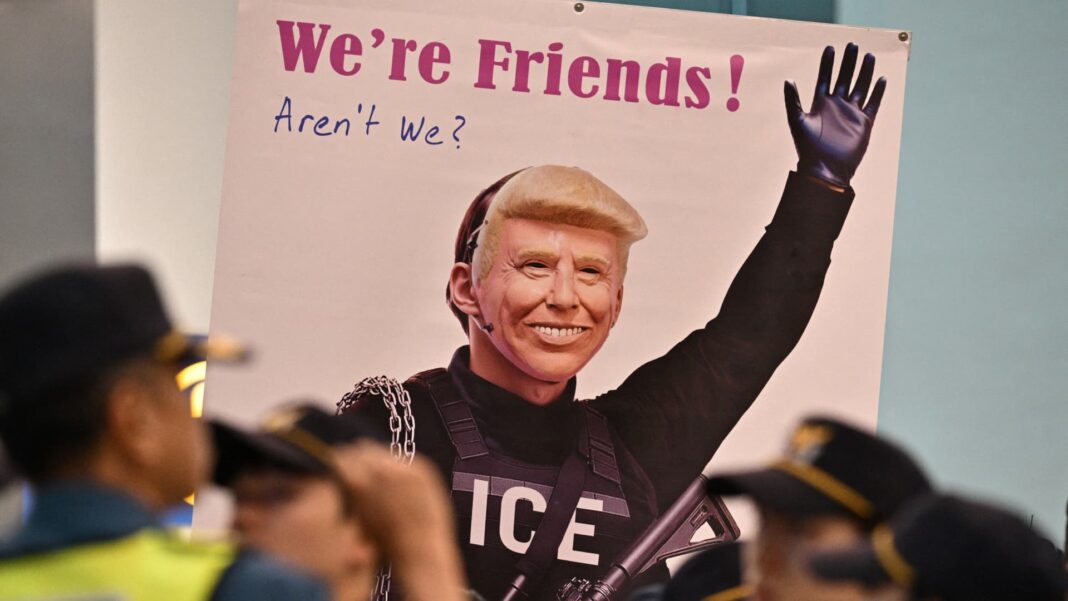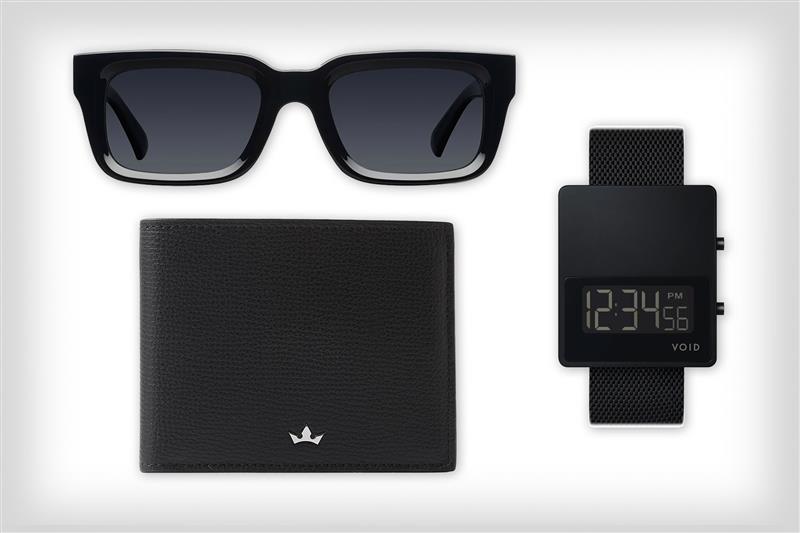A protest banner depicting U.S. President Donald Trump at Incheon International Airport in South Korea, on September 12, 2025, after the touchdown of a plane holding hundreds of South Korean workers who were detained as part of a U.S. immigration raid at a Hyundai-LG plant in Georgia.
Anthony Wallace | Afp | Getty Images
The White House on Monday moved to limit the fallout of an immigration raid at a South Korean-owned battery plant in Georgia on Sept.4 — a move that angered the U.S. ally and sparked concerns regarding foreign investment in the U.S.
The Georgia facility, operated by Hyundai Motor Group and LG Energy Solution, saw 475 of its workers arrested on allegations that they were in the U.S. illegally, or without the proper work permits, with hundreds of detained South Koreans sent home Thursday.
The raid was part of a broader deportation drive by the Trump administration, which the White House has described as central to fulfilling U.S. President Donald Trump’s election campaign promises. Stephen Miller, the White House’s deputy chief of staff and homeland security adviser, has pushed for 3,000 arrests a day.
Amid backlash and concerns over how the raid could disrupt efforts to bring manufacturing back to the U.S. — a move called reshoring or onshoring — Trump, in a post on Truth Social Monday, stressed that foreign workers are “welcome” in the country.
Trump said that he wants foreign companies building complex products, machines, and various other “things” to bring skilled employees to train the domestic workforce, though he emphasized that these foreign workers are expected to return home eventually.
“If we didn’t do this, all of that massive Investment will never come in the first place… I don’t want to frighten off or disincentivize Investment into America by outside Countries or Companies,” Trump said.

Meanwhile, Christopher Landau, a top U.S. diplomat, expressed regret over the immigration raid in a meeting with South Korean counterparts over the weekend, suggesting that the event could be used as a turning point to strengthen bilateral relations, according to the Korean Foreign Ministry.
Landau also said that South Korean workers will face no disadvantages in reentering the U.S. and that Washington would strive to prevent similar incidents.
Further fallout?
Besides Washington’s reconciliatory statements, Landau also said in a post on X that the U.S. State Department “will ensure that [the South Koreans] have the necessary and proper visas to comply with our laws.”
South Korean state media reported that Washington has agreed to establish a new “visa working group” for the country, with discussions said to include Seoul’s desire for a separate U.S. visa quota for its workers.
Currently, the U.S. allows employers to temporarily hire foreign workers in “specialty occupations” under its H-1B visa program, but the system is highly selective due to an annual cap and a lottery system.
A South Korean presidential spokesperson also told local media on Monday that Seoul is conducting a more thorough review to determine whether any human rights violations had occurred during U.S. immigration enforcement at the Georgia battery plant.
U.S. government officials said that hundreds of the workers detained at the facility had been staying in the country illegally.
Experts have told CNBC that the immigration actions — the single largest enforcement operation in the U.S. Department of Homeland Security’s history — could lead to other foreign businesses reassessing their workforces in the U.S.
LG Energy Solution told CNBC last week that the commencement of the Georgia EV battery plant had been postponed from 2025 to 2026. However, the company claimed that the decision was not related to the recent incident but rather to external factors, including overall market conditions.
Many other South Korean tech giants have been investing billions into facilities in the U.S. as part of reshoring efforts, including semiconductor companies Samsung Electronics and SK Hynix.
South Korean President Lee Jae Myung has called the raid “bewildering,” adding that it would discourage future investment into the U.S.


